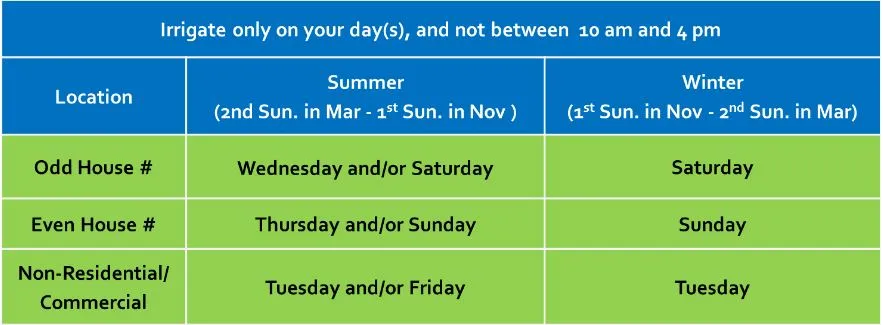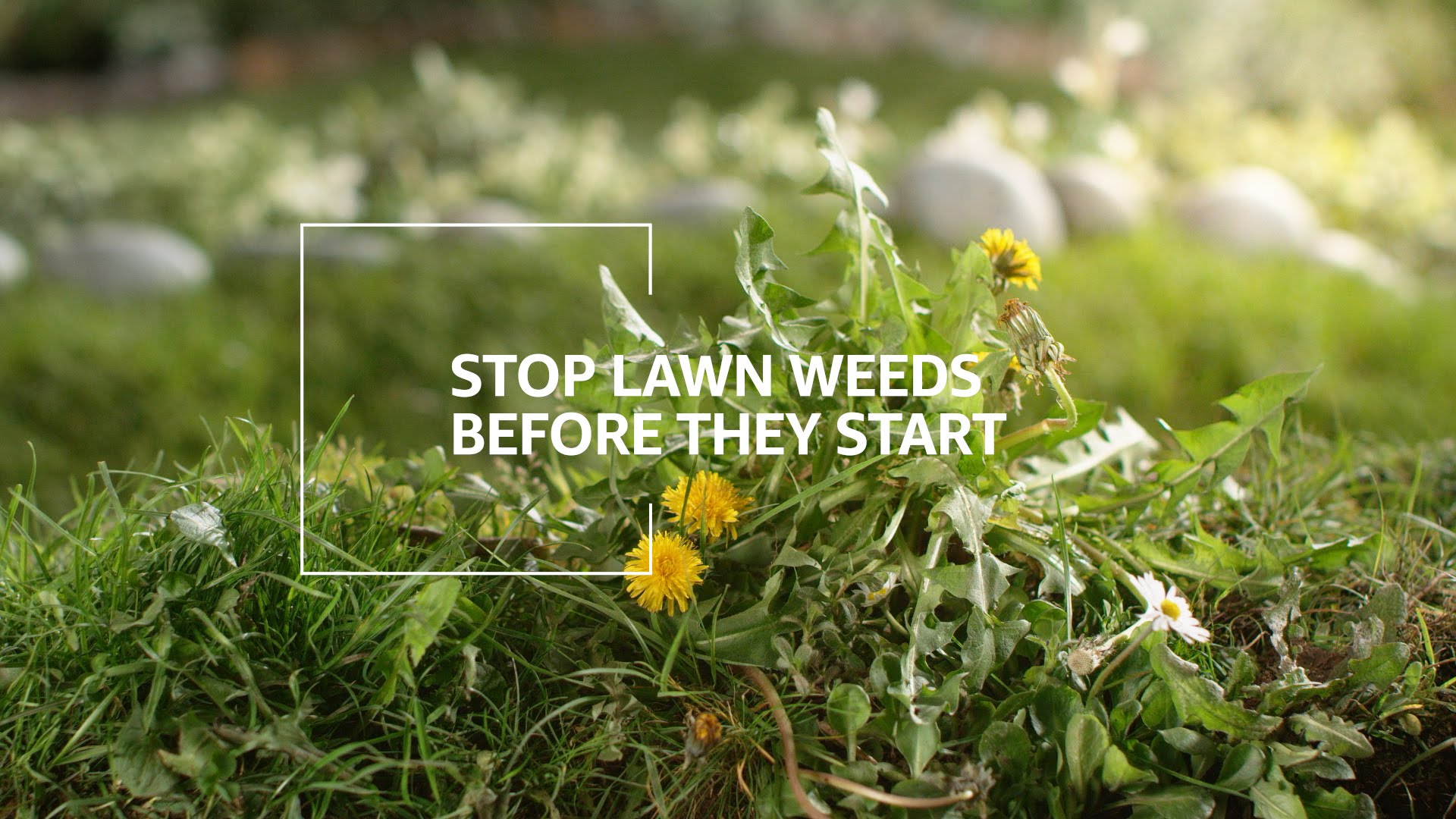April slipped right past us and here we are in mid-May, knocking on summer's door. This is the time of year that we hear from a number of clients who are particularly concerned about their lawn. The typical call may sound a lot like this:
"I'm really worried about my lawn. It started to green up from winter and was looking nice right after you fertilized. Suddenly, it's getting worse. Is there a pest eating my lawn or does it need more fertilizer?"
After spending a few minutes on the phone with the client asking questions, we're typically able to identify one of the 3 primary spring issues.
The majority of problems in Gainesville lawns over the past couple weeks has come from 3 primary concerns:
Drought Stress - This is the most common issues, and luckily, drought stress in lawns is one of the easiest problems to identify. Take a look at areas of your lawn that get some shade throughout the day. Does this area look healthier than the areas that are in full sun all day long? If so, you most likely have irrigation issues to address.
Many clients will increase the length of time their irrigation is running, or perhaps add another day of irrigation. But the answer may not be as simple as that. I met with a client just last week that was certain her sprinkler system was running several times a week because she sees it running as she goes to work. She was correct, the system was actually set to run every other day, which is actually far too often. What the client didn't realize is that only half her system was functioning correctly. She had 1 zone not operating due to cut wires, 2 broken heads, and large shrubs blocking several of her sprinklers from covering her turf. Long story short - just because your sprinklers are running doesn't mean your lawn is getting enough water!
This is why we recommend seasonally inspecting your sprinkler system for proper coverage and operation. Here are a couple photos of shrubs blocking irrigation coverage, broken sprinkler heads, and a close up photo of drought stress (notice the folded leaf blades).
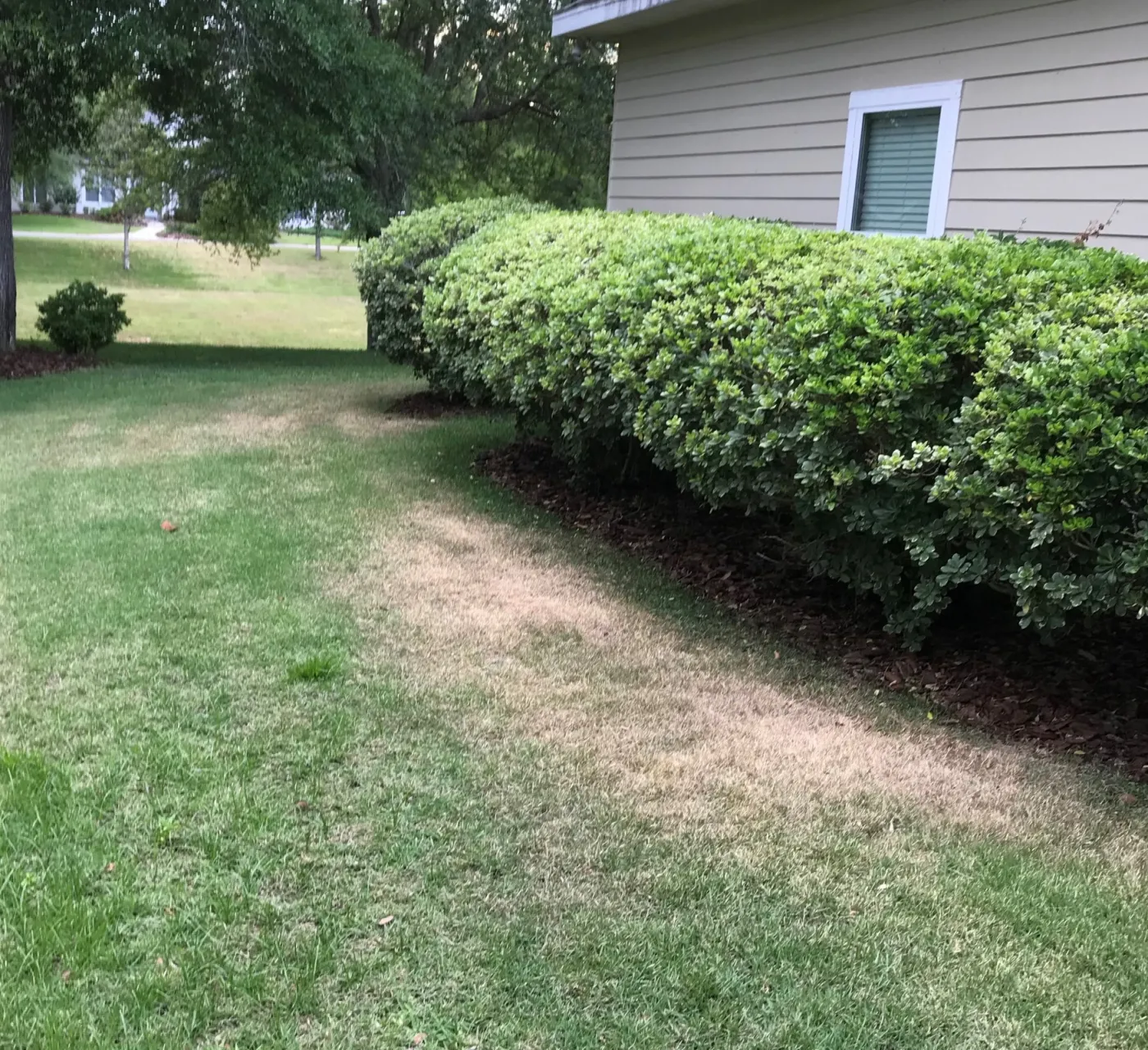
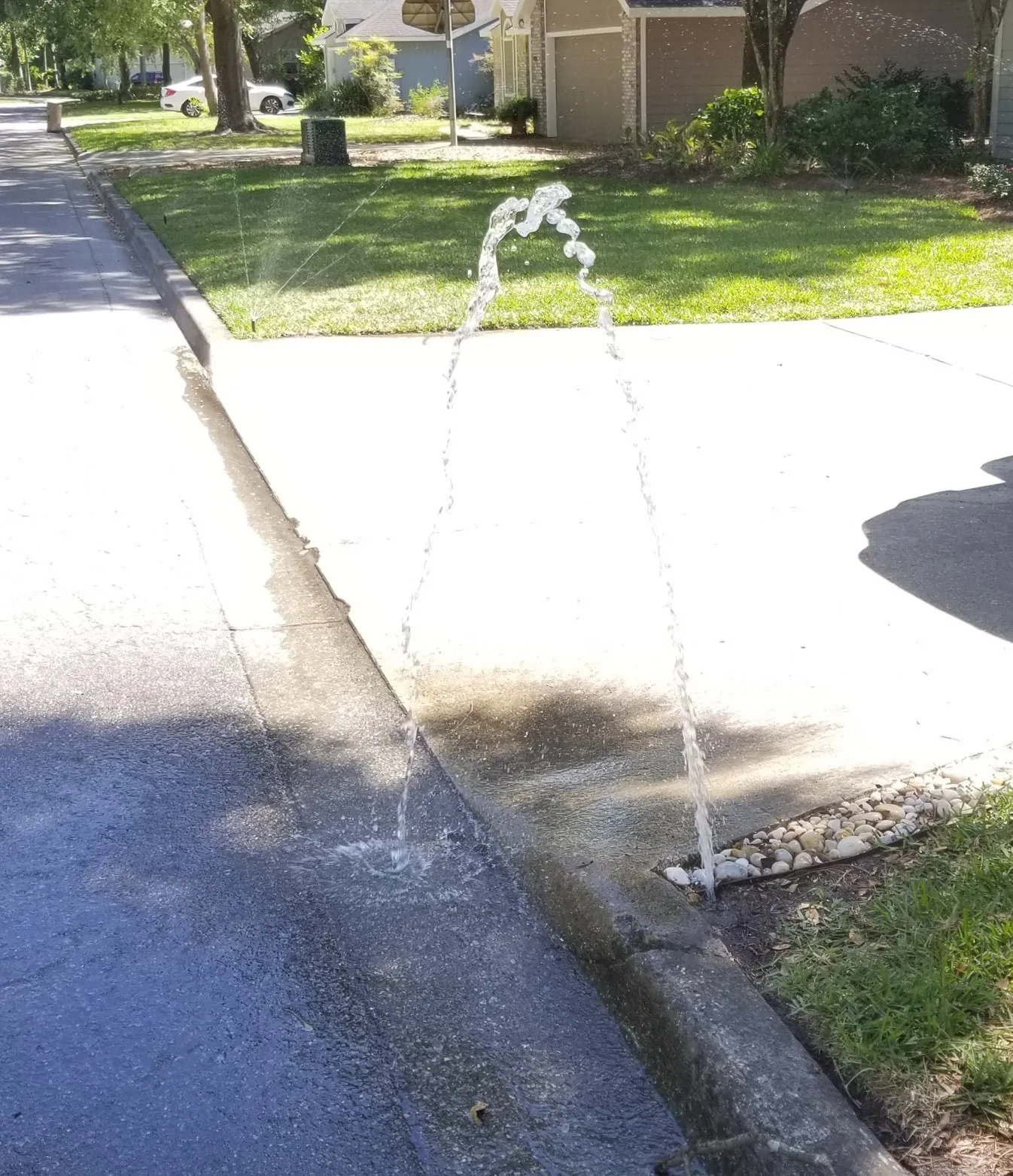
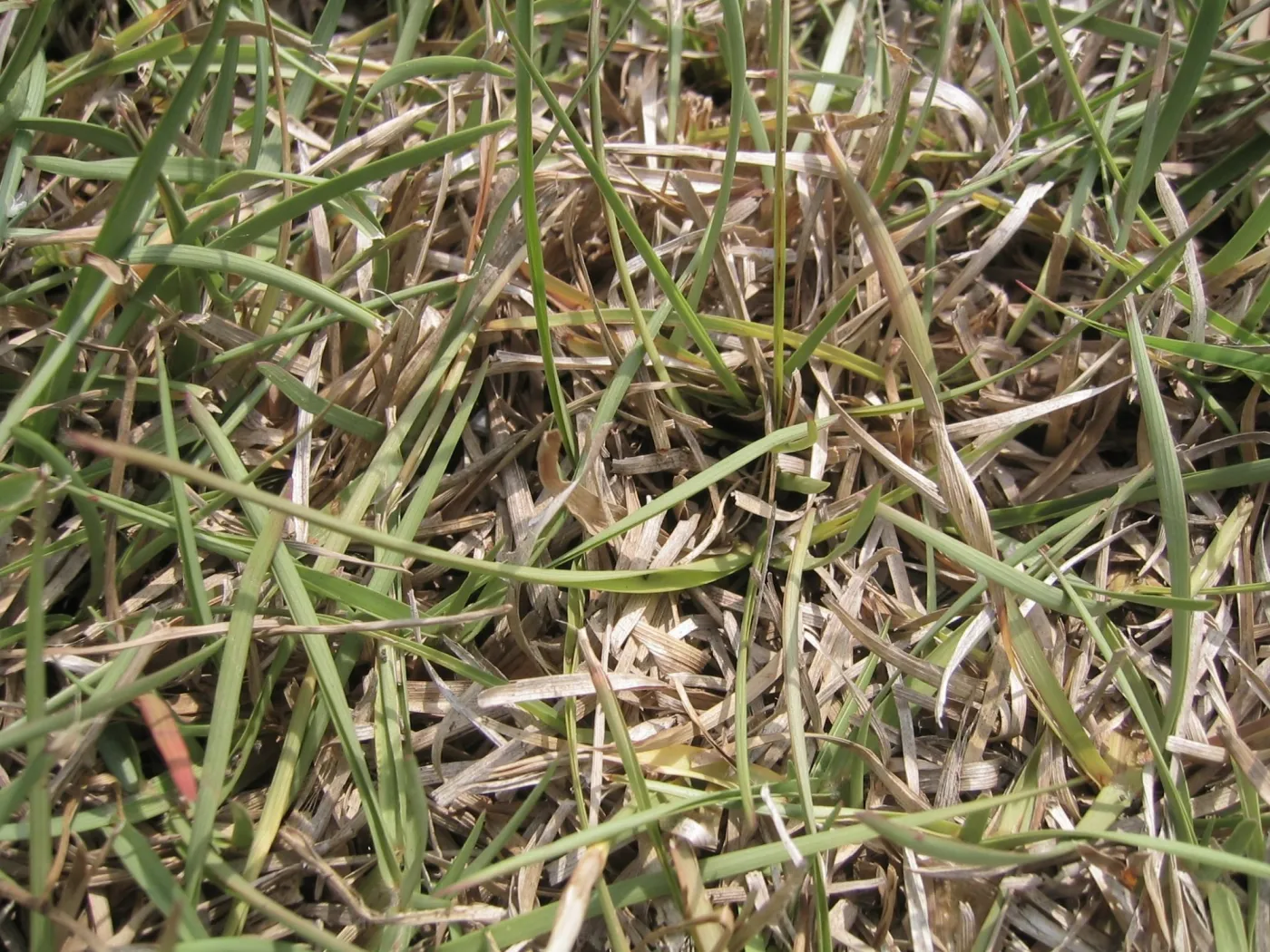
#2 - Winter Damage- This past winter got substantially colder than we're used to experiencing in North Florida (see the link).The cold weather also dragged on for a longer time than normal, giving us a slow start to spring. (We had lows in the 50's in the first week of May!)
January's hard frosts did a lot of damage to Gainesville lawns that didn't have deep roots - especially recently sodded lawns. Many of these lawns are starting to come back, but it will take some time for them to recover from the stress. Most lawns that have been established and fertilized for a couple years didn't experience frost damage due to their roots being deep down in the insulated soil. This is another reason our fertilization program focuses heavily on soil nutrition and root development in the fall - to prepare for frosts.
#3 - Chinch Bugs (which originate from drought stress)-
In actuality, we haven't seen many chinch bugs this spring in comparison to prior years because of the lingering cold weather. Chinch bugs rely on two factors to thrive - heat and drought. Because the heat has just really kicked off in the past couple weeks, they have gotten a slow start but will be beginning to spread quickly over this dry and warm weather we are experiencing. Keep a lookout for signs of chinch bugs dry areas near concrete and asphalt. (see link for YouTube video on identifying chinch bugs). Below is a photo of where chinch bug damage typically begins.
If we can help you with your Gainesville, Florida lawn's sprinkler system coverage, recovering from winter, or protecting your lawn from chinch bugs - please don't hesitate to call us at (352) 378-5296 or fill out the form at the top of the page.
